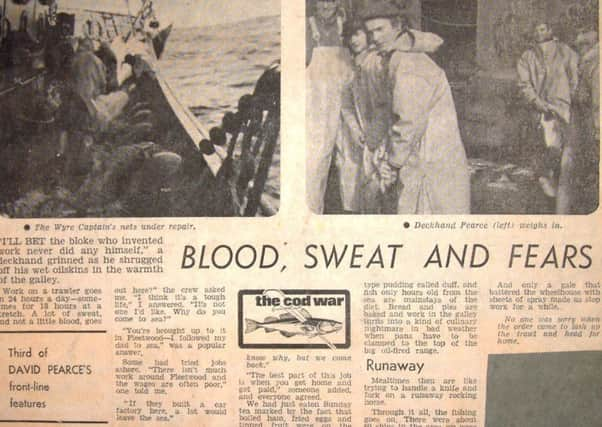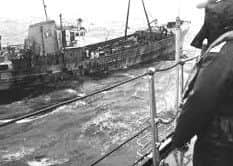Sixty years ago this weekend, the Cod Wars began.By the end, a town's way of life would die


It is exactly 60 years since the start of the first so-called Cod War, when Britain’s distance water fishermen found themselves in a state of direct conflict with the nation of Iceland.
Ask anyone in Fleetwood aged 40-odd or older, and they will most likely tell you that the outcome of this unfortunate struggle – three conflicts spanning around 20 years – was catastrophic for the port.
Advertisement
Hide AdAdvertisement
Hide AdIt directly caused the decimation of a proud industry, the loss of thousands of livelihoods, and a massive body blow to an entire town.


Many say Fleetwood has never recovered.
At the heart of the antagonism was the right to catch white fish in the rich fishing grounds off Iceland, which had become increasingly important to the UK deep sea fishing fleets over the 20th century, and particularly to Fleetwood.
After a period of rising tension, things came to a head at midnight on September 1, 1958.
The Icelandic government issued a new law which expanded the country’s fishery zone from four to 12 nautical miles (7.4 to 22.2 km), restricting foreign boats which were mainly British.
Advertisement
Hide AdAdvertisement
Hide AdThat conflict ended in 1962, but two others were to follow (in 1972-3 and 1975-6), as the Icelanders pushed the fishing limits further and further back, and backed up their new laws with menacing gunboats.
By 1972, the limit had been pushed back to 50 nautical miles and a further restriction sparked the final Cod War, the most bitter and serious of all.
Lives were increasingly at risk as the Royal Navy entered the fray with more than 20 frigates, with Icelandic gun boats and coastguards threatening British trawlers and cutting away their catches.
When Iceland eventually threatened to leave NATO and shut down the naval air base at Keflavik, at a time when the Cold War was intense, an international decision had to be made.
Advertisement
Hide AdAdvertisement
Hide AdThe Icelanders got their way, with the final exclusion limit set at 200 nautical miles, and Fleetwood’s deep sea fishing industry, already in decline but still a massive employer, died.
As a footnote. a trawler compensation scheme was later launched by the British government in 2009 for those who lost their livelihoods, but this became mired in controversy.
And history could even repeat itself as British fishermen clashed with their French counterparts in the English Channel, just days ago, in a conflict now being dubbed the scallop war.